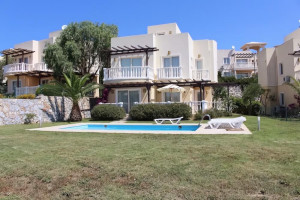Achieving happiness in your new expat life in Turkey is highly achievable - you just have to know how. We asked a few expats which habits were crucial for happiness in Turkey. The answers might surprise you.

Happy expats have a light heart - and a sense of minimalism. Practically, taking lots of stuff with you can be difficult - red tape, taxes, and customs all present a bit of a headache. “Furniture is good quality and reasonably priced in Turkey,” Dave from the UK explains. “There is nothing like the feeling of leaving everything behind to completely start over. And if you do visit home and take stock of the things you left behind, you’ll wonder why you ever held onto it.”
You’ll also find you might let go of emotional baggage. “Becoming an expat isn’t just putting physical distance between you and your home country - it’s also emotional. You let go of baggage, your priorities change. It’s travelling light in every sense of the word.”
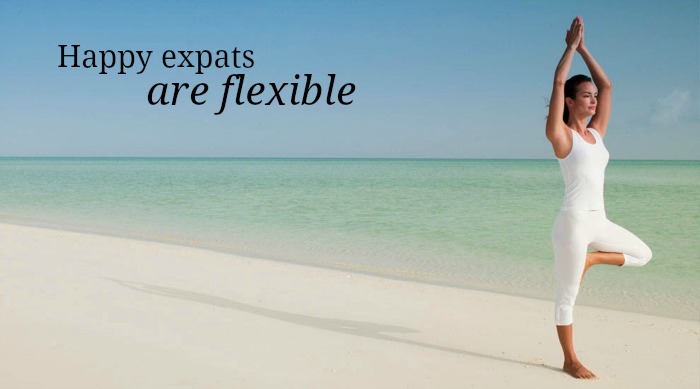
“Sometimes potential expats have an idea in their head about what an area is like and they are disappointed to find out it’s actually quite different from what they expected,” says David, who retired to Turkey in 2011. He suggests would-be expats have a degree of flexibility about where they’ll end up. “When I was planning to move here I had my heart set on Cesme. But actually, although I’d been on holiday there a few times when I started looking around there with ‘expat eyes’ I realised that while it’s lovely, it wasn’t quite what I was looking for. I continued my search and ended up in Fethiye, which I love.”
Dave says flexibility will also help you ease into your expat life. “Being flexible means you’re more likely to adapt to the customs and culture of your new country.”
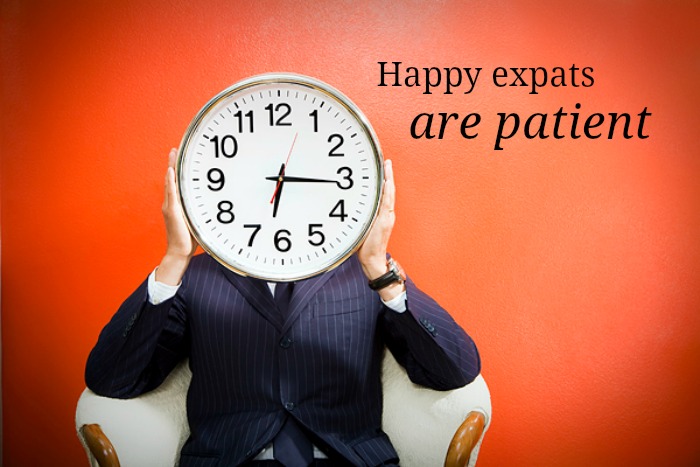
Navigating the inevitable red tape and bureaucratic processes of your new country can be extremely frustrating. “You’ve just got to - excuse the cliche - go with the flow,” says Johannes from Norway. “There’s no point getting worked up about it, just tell yourself it’ll take a day, or a week and then it will be over.”
There are other frustrations too, that will require patience, he says. The language barrier, making friends, finding your way around as a local and not as an expat can all be wearing. “Try and take a zen approach. And ask for help from someone who’s done it all before.”

“For many expats, moving abroad is the goal,” Johannes says. “But it isn't enough. Once they’re living abroad, they realise their goals are fairly nebulous: enjoy their retirement, spend time relaxing in the sunshine. How do you do that exactly? Vague ideas are not enough; you need concrete reasons to get up each morning. Having having goals for your expat life is crucial."
Learning Turkish, taking up an instrument, volunteering with a charity, hiking - these are just a few activities that lend purpose and structure to a day. “But you need to plan for it. You have to get up and do it, not just talk endlessly about how you’re going to improve your golf game one day. I think the happiest expats are the ones with purpose, with goals.”

Moving abroad means a steep learning curve, says Johannes. “If you give yourself a head start before you move, you’ll be ahead of the game.” Find out all you can about your future home before you get there - the internet makes this easy. “Soak up as much information as you can: bus routes, schools, the best local supermarkets or markets, banking, taxes, expat organisations, language classes - the more you know, the less jarring your move will be. There is so much to assimilate when you first move, if you already know some of the basics you’ll really do yourself a favour.
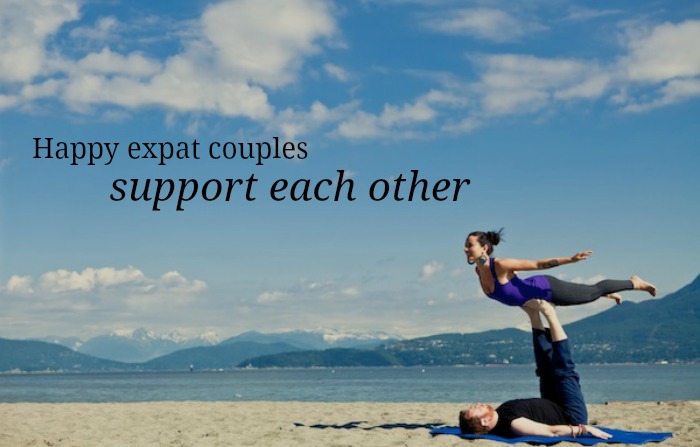
Moving is stressful, and moving to a new country can pull even an established couple in different directions. “Each couple will experience a certain degree of stress, which they will be expecting,” says Bridget, an American living in Side, Antalya with her husband Evan. “However, what they might not anticipate is that the stress for each partner might be different. He might be worried about the lack of social networks, while she might be focussed on the difficulties of the mechanics of setting up life in a new country.”
Bridget suggests taking extra care to listen to each other, and making sure each partner is open and honest about their frustrations. “It’s also a good idea to spend some time each week exploring together, it will help create positive new memories together which you can use as a foundation to build upon.”

“I know this seems obvious, but it’s funny how many people overlook this in their bid to get settled in,” says Bridget. “You need to get out there and explore. A genuine interest in your new country is what will keep you happy here. Get out as much as possible. There is so much to do here - visit ruins, museums, go sailing, discover a cool new cafe, speak to locals and take day trips to nearby towns. Eat foods you’ve never seen before, do things you never thought you could do - get out of your comfort zone a little.”
An interest in where you are keeps you active and happy, she says. “I believe people who have the best expat experiences are the ones who are genuinely interested in their new country as it fosters greater activity and involvement.”
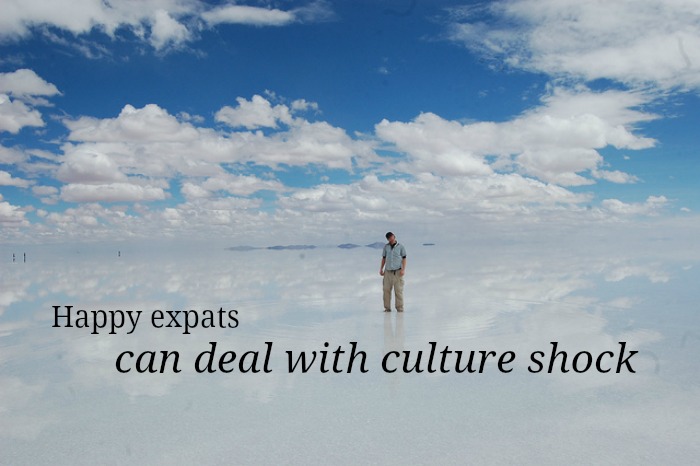
“It happens to the best of us,” Bridget says. “Even if you’ve holidayed here a hundred times and think you know it all, the reality of living here will hit you like a truck at some point.”
Bridget’s moment came three months into his new life. “I was at a local supermarket looking for flour. I couldn’t find it and I couldn’t make myself understood. I became so upset and angry that I had to leave the shop.” Fortunately he recognised the symptoms of culture shock. “A few days later I went away for a break. I realised I’d been working so hard to adapt that I was focussing solely on the differences between my old and new culture. I wasn’t taking the time to enjoy the parts of Turkey that brought me here.”
She recommends taking a small holiday a few weeks in. “Give yourself some respite from the effort that relocating can bring.” The best thing about culture shock is that it’s temporary, she says. “One day you’ll look back at your early days and shake your head and laugh. I promise. After four years here I really would not live anywhere else.”
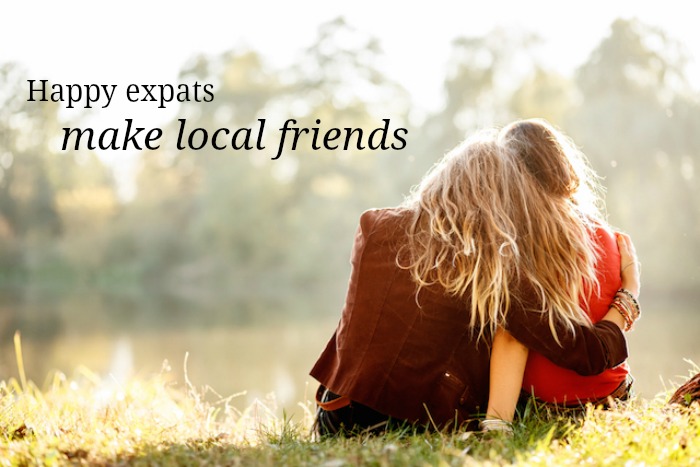
New expats should work hard to avoid falling into “the expat trap”, where you end up making friends from your own country, Dave says. “The danger you run with “the expat trap” is you not only miss out on learning about the culture and great things about your new home, but you might find yourself stuck in an ‘us-versus-them’ cycle of complaints as you and your friends compare and contrast your new home with your old.”
Dave says most large centres in Turkey offer endless opportunities for expats to make local friends. “Language exchanges, cultural events, volunteering, getting involved with the local school, joining a church - just get out there and meet people. Turks are friendly and open. Take advantage of their niceness and befriend them.”








